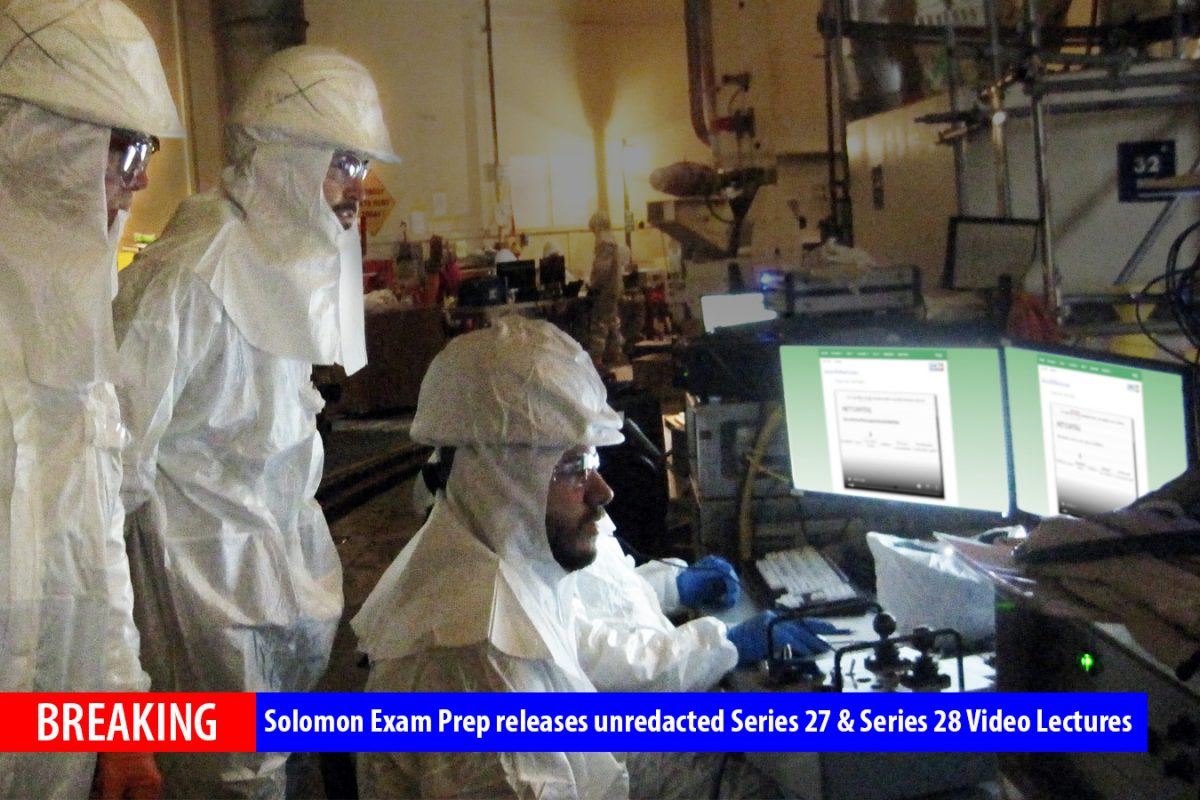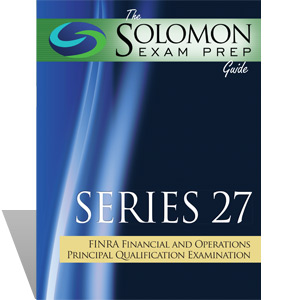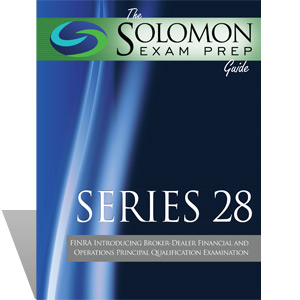On February 5th, FINRA officially adopted a pair of new provisions designed to empower firms to identify and assist elderly and disabled customers who may be victims of financial exploitation. Continue reading
On February 5th, FINRA officially adopted a pair of new provisions designed to empower firms to identify and assist elderly and disabled customers who may be victims of financial exploitation. One amends the rules around collecting customer information, and the other lets a firm take action in response to unusual account activity.
These changes could soon show up on multiple exams, including the Series 6, 7, 24, 26, 27, 28, 65, 66, and of course the upcoming SIE exam.
The “Trusted Contact Person”
In your future career in securities, you may have an elderly or disabled customer who begins making decisions that don’t appear to be in his best interest. Maybe you can’t get ahold of him to ask about unusual transactions on his account. But if the transactions appear to be legally authorized by the customer, is there anything you can do about your suspicions?
Yes. These new rule changes help you help this customer in two ways. First, you’re more likely to have someone close to the customer who you can reach out to. From now on, when a firm collects or updates a customer’s personal information it must try to get the name and contact information of a trusted contact person. The firm has a limited ability to share information with the trusted contact person to address certain situations that may indicate that the customer is vulnerable.
For example, if the firm can’t contact the customer, it could ask the trusted contact person about her whereabouts. Depending on the situation, this could be as simple as confirming that the contact information you have for the customer is still accurate. If the firm reasonably suspects a more serious problem, it can also ask questions to help determine whether poor health may be interfering with the customer’s ability to protect her own interests. In this type of situation, the firm can also ask for information about any legal guardian or power of attorney the customer might have.
Temporary Protective Holds
The other new provision lets a member firm put a temporary hold on an account if there is a reasonable belief that an elderly or disabled customer is being exploited. This type of hold can be placed if the following conditions are met:
- One of the individuals authorized to transact business on the account is:
- At least 65 years of age
- At least 18 years of age and has a mental or physical condition that keeps him from protecting his own interests
- The member firm has a reasonable belief that the customer may be the victim of financial exploitation.
- If the reasonable belief only applies to certain transactions (as opposed to all activity on the account), only those transactions should be blocked. Other account activity should continue to be allowed.
The member firm does not need definite knowledge of a specific, diagnosed disability, or any other kind of detailed medical information about the customer. The condition doesn’t even have to be permanent. A customer temporarily hospitalized for surgery could fit the definition, as long as there is reason to believe this is keeping her from being able to protect her own interests.
Financial exploitation is defined broadly for these purposes. Such exploitation can consist of “taking, withholding, appropriation, or use” of assets in the customer’s account, whether cash or securities. The reasonable belief can be in regard to past, present, or future exploitation. It can involve unusual actions that the customer supposedly took, or it can involve actions taken by someone else “through the use of a power of attorney, guardianship, or any other authority.” It can involve suspicion of intimidation, trickery, a combination of the two, or any other form of “undue influence” over the vulnerable person.
Required Follow-Up
When this kind of temporary hold is placed on an account, the firm must follow up in several ways. The firm has two business days to notify all parties authorized to transact business on the affected account, as well as the customer’s trusted contact person. If the firm has a reasonable belief that an individual is involved in the exploitation, that individual is excluded from the notification requirement, even if it is the trusted contact person. The notification must disclose the temporary hold and the reason for it.
Another way that the firm must follow up is with an internal review of what the reasonable belief of exploitation was based on. This review must be opened as soon as the hold is placed. It is important that the review be completed promptly, because it may affect the length of the hold.
Initially, the temporary hold may be placed for up to 15 business days. The firm is allowed to grant an extension of up to 10 more business days, but only if the internal review is completed and finds that the belief was in fact reasonable. (On the other hand, if the internal review finds that the belief was not reasonable, the hold would likely be ended immediately.)
The member firm can extend the hold further if a court or state agency (such as Adult Protective Services) orders or requests it. A request from a state agency need not be formal. It could be as simple as the agency asking for an extended hold to give them more time to investigate. Such a request should be carefully documented so that the firm can show that the extension is allowed.
Each member firm must have written procedures specifying who within the firm is authorized to place, remove, or extend this kind of hold. Only an associated person whose job function is supervisory, legal, or compliance-related can be authorized to place this kind of hold. All records related to such a hold must be retained for the default period of six years.
Continue to rely on Solomon Exam Prep for up-to-date information of interest to takers of the Series 6, 7, 24, 26, 27, 28, 65, 66, SIE, and other securities exams.









